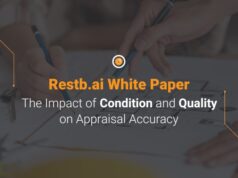Norton Releases Letters from Public Water Utilities Opposing D.C. Wipes Rider, Citing Significant Harms and Costs to Federal Government, Sewer Systems, Workers, Waterways, Homeowners and Businesses
WASHINGTON, D.C. –- (RealEstateRama) — Congresswoman Eleanor Holmes Norton (D-DC) today released letters from the National Association of Clean Water Agencies (NACWA), which represents water utilities across the country, and DC Water expressing their strong opposition to efforts to block the District of Columbia’s new law regulating the labeling of personal hygiene products, particularly wet wipes, as safe to flush. Representative Andy Harris (R-MD), who serves on the House Appropriations Committee, has told the press that he has met with the wet wipes industry and is considering blocking the law during the upcoming appropriations process, which would be the third D.C. law he has tried to block. DC Water treats wastewater not only from D.C., but also from Maryland and Virginia, as well from Congress, the White House, and federal facilities, all of which are DC Water ratepayers that would incur costs from damage caused by non-flushable wipes. According to NACWA, utilities spend up to $1 billion per year to address clogs and other problems caused by the flushing of wet wipes.

“D.C.’s local laws and right to self-government are usually under attack by social conservative groups, but the city’s wet wipes labeling law is being attacked by wealthy multinational corporations,” Norton said. “As DC Water’s largest ratepayer, the federal government has a strong interest in preventing the hundreds of millions of dollars in damage to pipes and sewers cause by non-flushable wipes. If D.C.’s law is blocked, the wipes industry will be emboldened to push for national legislation preempting state and local governments from passing wipes labeling laws. Members of Congress must use this undemocratic intrusion into D.C.’s local affairs to understand that wet wipes pose a problem for water systems across the country and alert their own water utilities.”
The D.C. Council unanimously passed the Nonwoven Disposable Products Act of 2016, and the mayor signed it, after the Council held a hearing with witnesses representing industry and wastewater utilities. As the letters from DC Water and NACWA indicate, wet wipes cause serious problems and create significant costs for ratepayers, the federal government, sewer systems, workers, waterways, homeowners and businesses.
The Association of the Nonwoven Fabrics Industry (INDA) and its members have been leading the effort to block the law. After the industry tried but failed to find a Member of Congress to introduce a disapproval resolution to nullify the bill during the congressional review process this year, the industry began aggressively lobbying Members to add a rider to block the law during the appropriations process.





